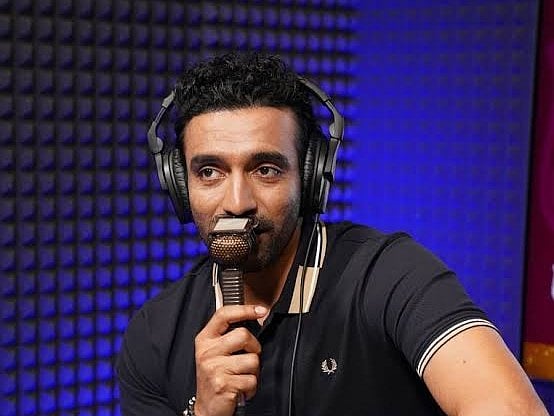Bhopal(Madhya Pradesh): Stephen Klingebiel, Head, Research Programme at the German Institute for Development and Sustainability, Bonn, has had a long association with research and studies on development, development policy, political economy and governance issues. He has worked at Stanford University, California, and China Agricultural University, Beijing.
Since November 2021, he has been an Honorary Distinguished Fellow at the Centre for Sustainability, Jindal School of Government and Public Policy, Haryana.
In the city to take part in the G20-related events, he talked with the Free Press on whether and how the world is moving towards the Sustainable Development Goals (SDGs), formulated by the UN General Assembly, which are to be achieved by 2030, and how you and I can help save our planet. Excerpts:
How close is the world to realising the Sustainable Development Goals (SDGs) ?
The thing is that in principle, all the countries, everyone, agrees with the SDGs. But in reality, the world is not really making any progress. Look at how inequality is growing, how carbon emissions are increasing. Things are not really moving.
Which countries or regions of the world are ahead and which are laggards in meeting SDGs?
The problem is that there have been so many crises. There was the pandemic and then the Russia-Ukraine war. To give you just an example, for the first time in the past 30 years, the UN Development Index went down for two years in a row in the developing countries. We had never seen such a situation before. The developing nations are suffering more.
Where does India stand in terms of fulfilling SDGs?
I would need to check. But broadly, I can say that India is progressing in a number of areas. Look at Bhopal, there are so many efforts to promote renewable energy, to make Bhopal a sustainable city. But at the same, India is a major contributor to global carbon emissions. I acknowledge that the US and Europe sermonising the late-comers, the developing countries, is not fair. But we can’t survive if huge economies like India and China do not contribute to combating climate change.
Do you think the Covid pandemic and the Russia-Ukraine war have adversely impacted the endeavour for attaining SDGs?
Yes. Of course. Very much. All the countries in the world are affected, especially countries like India and the Latin American countries. In India’s neighbourhood, Sri Lanka is facing big issues. It shows that only socio-economic factors are relevant to SDGs, governance issues also matter. Political instability, like in Sri Lanka, is a big obstacle.
Can the common man help in the attainment of SDGs?
Yes. They can. The poor people do not have many choices. If they have to use fossil fuels for cooking, they will. But it is the rich, flying in their private jets or travelling alone in huge SUVs, who need to reflect on what they are doing. We should understand that if we throw a plastic bottle into a lake near our home, then we are contributing to polluting the oceans. Also, people should try to lower their meat consumption.
How will lowering meat consumption help?
You see, if I eat meat, animals will have to be slaughtered. And how are animals prepared for slaughter? They are fattened. A lot of maize, a lot of soya, is used to fatten animals. Growing that maize and that soya consumes energy and energy production, hastens climate change. So meat consumption is a major contributor to climate change. Of course, in India the situation is different. Here we have a large number of vegetarians. But in Europe and America, meat is consumed in huge quantities.












